Graduate Student Organizations
Event Description
Research Cafe: February 21, 2024
3:00 - 4:00pm
On Zoom
Register in advance to receive the Zoom link
1.) "Traditions as Events: Phenomenological Bullhead Fish Hats and Hani (Akha) Sacred Swings Rebuilding" by Yingchun Xu, Media Studies
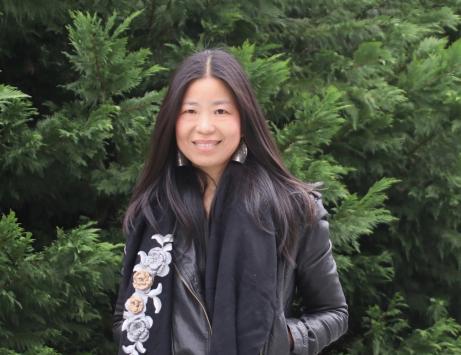
Abstract: Historically, indigenous traditions have long been considered backward, superstitious, and barbaric. The gradual disappearance of their cultural traditions is often accompanied by the termination of the production methods deemed as "backward" and the assimilation of their languages and education to adapt to modern social life. Originally the concept of tradition, literally from the Latin meaning "something handed over," in slowly changing societies was almost equivalent to inheritance. Alice Horner (1990) reminds us that tradition refers to the process of handing down from generation to generation, and something, custom, or thought process passed on over time. As a matter of fact, indigenous traditions have encountered cultural dislocation, such that sacred objects, customs, and rituals have been destroyed, eliminated, and alienated historically and globally. The question is: Are indigenous traditions recognized as a concept of time, mainly related to the "past" time or the obsolete, still suppressed unconsciously rather than appreciated by mainstream cultures? I argue that indigenous traditions should be practiced as events, a phenomenological “excess of signification (Garnet Butchart, 2011),” and a space frame of synchronicity. Based on two anthropological cases, Tlingit bullhead fish hats 3D repatriation from Smithsonian Institute, and Hani/Akha rebuilding and creation of their traditional swings, I analyze that the traditions as events through media show themselves rather than be shown, thereby forming spaces of indigenous people with their ancestors.
Speaker Bio: Yingchun Xu is a Ph.D. student in Media Studies at Rutgers. After exploring a wide range of disciplines in theories and being engaged in media-related work such as local TV, NGOs, and universities, her research focuses on media and indigenous culture, the political economy of digital media and cultural representation. Based on mixed methods including anthropological fieldwork, archival studies in museums such as in Smithsonian Institute, and discourse analysis, her research interests include the Hani case studies of China's ethnic “cultural root-seeking” as a resistance and cultural revival movement compared with the Akha case in Thailand, gender representation via media, and algorithm as a cultural technique.
2.) "In Pergula Natus: The Apartments of Pompeii and Herculaneum" by Jessica Mingoia, Art History
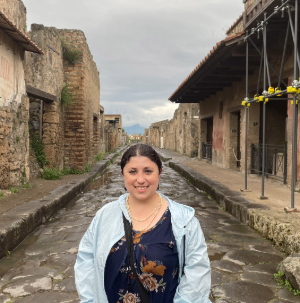
Abstract: Much of the sub-elite population of ancient Pompeii and Herculaneum resided in apartments. These non-elite residences are frequently found located inside spaces within one to two room commercial shops located on the ground floors. Sleeping quarters could be found in rear rooms or up ladders or steep staircases leading to mezzanine lofts (tabernae cum pergulis). Other apartments were accessed through exterior staircases leading to a separate upper story residence (cenacula). For much of the sub-elite population of ancient Pompeii and Herculaneum, sleeping in the same place where one worked was commonplace. Physical evidence of the existence of the living spaces within these shops can still be found in situ, including the imprints of long-vanished stairs on damaged walls, post-holes that once supported mezzanine lofts (pergulae), or carbonized wooden bed frames. In both cities, there are also large numbers of staircases which once led to independent upper story apartments above houses or public buildings. External staircase entrances and fragmentary remains of upper stories provide evidence for cenacula. Despite the prevalence of these apartments, which greatly outnumber houses, they are often overlooked in modern scholarship. Ancient scholarship also disparages these smaller residences and those who lived within them. This dissertation seeks not only to catalogue, map, and analyze these understudied residences using archaeological evidence, but also to tie the physical remains of these structures to ancient literary sources about these dwellings, their residents, and how both were viewed in the Roman world. Through this project, I will also endeavor to create a classification system of the archaeological variations of these residences to prove how greatly the size and features of these apartments could vary. I will also re-evaluate the relationship between non-elite apartments and their neighboring elite houses
Presenter Bio: Jessica Mingoia is a PhD candidate in art history specializing in Hellenistic and Roman art, architecture, and archaeology. Her dissertation, "In Pergula Natus: Apartments in Pompeii and Herculaneum'', will serve to survey and catalogue the non-elite apartments of these ancient cities, including their living conditions and features, relationship to elite neighbors, and prevalence within the urban fabric of the cities. Jessica is committed to improving DEI at Rutgers and is a member of the SGS Diversity, Equity, and Inclusion Graduate Student Advisory Committee. She is a passionate advocate for those with invisible disabilities and devoted to inclusive and equitable pedagogy. She also teaches undergraduate courses at Rutgers and other universities and is a contributor to Smarthistory. She has previously served as a co-editor and the advisory editor for the Rutgers Art Review, a graduate student-run art history journal.
3.) "Biophilia in the Urban Environment" by Ana Maria Oliynyk, Landscape Architecture
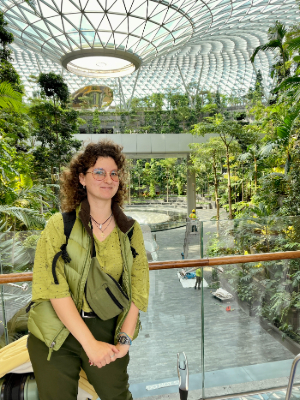
Abstract: As the global population becomes increasingly urbanized, the dissonance between traditional built landscapes and natural landscapes becomes increasingly loud, the disconnect between urban citizens and nature all the more significant. While the biophilia hypothesis postulates that humans are intrinsically connected with nature, and need nature for overall well being, the traditional urban landscape is not conducive to such a relationship. In response, biophilia urges the revitalization of the built environment by designing with this human-nature connection in mind. The landscape architecture profession, perhaps as no other, is uniquely positioned to bring this change to urban environments. Most have heard of, or experienced Central Park and the High Line. Through projects such as these, landscape architects have long been able to merge the stark contrasts between nature and the concrete jungle, but we have ways to go to redesign cities in a way where nature is not just an embellishment, but truly intertwined in the urban fabric.
Presenter Bio: Ana Maria Oliynyk is a Master of Landscape Architecture candidate at Rutgers, combining her passions for nature and the arts and pursuing her ambition for bridging the gap between people and nature through this program. With a background in studio art, photography, photojournalism, and environmental studies, she hopes to contribute to the landscape architecture profession by employing multimedia strategies to forward biophilia and green infrastructure in the design world, and to create such change through hands-on work as a future landscape architect. Ana Maria works with the Office of Urban Extension and Engagement, and is currently collaborating on a project to revive a community garden at Rutgers-Camden.
About Research Cafe
Research Café brings together the entire graduate student community of Rutgers University-New Brunswick/Piscataway campus to strengthen scholarly literacy and interdisciplinary research communication by providing a platform for budding researchers to connect, share their in-progress research or scholarship, and benefit from peer feedback in a friendly and low-stakes setting.
Research Café is a monthly, one-hour event occurring entirely on Zoom for the Spring 2024 semester. Each event will feature:
- Presentations (10-12 min. each) from two graduate students from across disciplinary areas ranging from engineering and biology to history and anthropology.
- A Q&A dialogue with peers and attendees.
Sign up to attend in person or on Zoom at https://grad.rutgers.edu/research-cafe.
---
Questions? Contact Briana Bivens at bb770@grad.rutgers.edu
Research Cafe: Pritha Mukherjee & Julie Aromi
Graduate Student Organizations
More Information
Learn more about the Research Cafe series.Event Description
Research Cafe: April 17, 2024
3:00 - 4:00pm
On Zoom
Register in advance to receive the Zoom link
1.) "Reconstructing Heritage: A History of Archaeological Collections in Provincial Museums of Eastern India" by Pritha Mukherjee
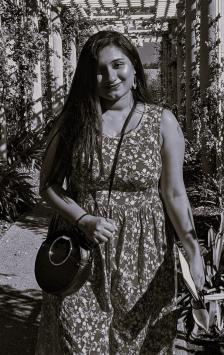
Abstract: My dissertation takes the creation of the Bihar Museum in India as a point of departure to interrogate the processes behind production of regional cultural heritage in Eastern India since the 1940s. In this presentation, I will be talking about how the Museum’s function as a modern archaeological museum signals a new age in museum-making in South Asia. Emerging out of the confluence of identity politics, the global Buddhist revival, as well as the hypernationalist heritage movement in India, the Bihar Museum has been touted as an international-level museum with star architects behind its design. The talk will feature three sections: historical background of museum constructions in Eastern India, the sociohistorical processes behind construction of the new Bihar Museum, and the wider national and international impact of its construction. I investigate the roles of new museums in reorganizing cultural heritage sites and what this radical reconstruction of an archaeological collection in service of regional nationalism tells us about the state of contemporary museology in South Asia more broadly.
Speaker Bio: Pritha Mukherjee is a 4th year PhD Candidate at the Department of Art History, Rutgers-New Brunswick and a Rutgers Presidential Fellow (2019-2024). Her dissertation explores the creation of archaeological collections in South Asia in twentieth century through contemporary times, and the politics of their popular representations in light of current sociopolitical developments. She has an MA in Historical Studies from Nalanda University, India, and a BSc (Hons) in Chemistry from Presidency University, India. Pritha has worked as a field investigator in the Rajgir Archaeological Survey Project (RASP) and done field surveys in north India and Nepal. Her work in public history includes her stints as a Walk Consultant with Rajgir Heritage Walk and a Research and Development Associate with Immersive Trails Pvt Ltd. She has researched and developed walking tours around the city of Kolkata and led public history workshops with Goethe Institut and British Council.
2.) "Archives and the Shape of a Story: An Analysis of NYC Archives’ Approaches to Preserving the 1991 Crown Heights Riot" by Julie Aromi
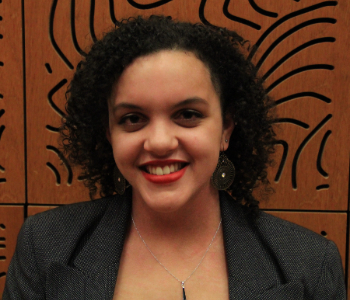
Abstract: New York City is home to a variety of archives, housed by institutions which pursue different missions, have access to different sources of funding, employ different staffing arrangements, and exhibit different allegiances to archival standards. These neighborhing institutions often collect materials about the same local events, resulting in collections that can tell very different stories. This presentation is an investigation of several archives’ collections surrounding one such event, the 1991 riot in Crown Heights, Brooklyn. Using principles of content analysis and critical archival studies, this presentation explores the process of finding, connecting with, and using archives administered by universities, local historical and community societies, public libraries, and municipal governments. It is an investigation of each institution’s priorities, mission and orientation, and the context in which collection, dissemination, and research happens. Part of a larger project examining the relationship of the archival to the historiographical, this is one facet of a case study that uses the Crown Heights riot to investigate archival and historical practice around events where public and archival memory are starkly racialized. Using each archive’s online presence, collection information and paratexts, and reference interviews with archival staff, this paper seeks not to tell the story of the riot, but rather the story of the institutions which have chosen to collect about it (and by extension, those which have chosen not to). This is a rumination on silences and exclusion, budgets and institutions, the responsibilities local institutions have to their city’s history, and ultimately, the relationship among the archive, archivists, events, and researchers.
Speaker Bio: Julie Aromi is a doctoral candidate in Library and Information Science and Media Studies in the School of Communication and Information. Her work investigates the flows of power from the archive to the public, and the ways that history is shaped and constructed. She holds a BA in sociology and African American studies from Princeton University, a Master of Library and Information Science, and a Master of History, both from Queens College (CUNY). She works as a fellowship advisor at GradFund, and does organizing work with the AAUP-AFT union.
About Research Cafe
Research Café brings together the entire graduate student community of Rutgers University-New Brunswick/Piscataway campus to strengthen scholarly literacy and interdisciplinary research communication by providing a platform for budding researchers to connect, share their in-progress research or scholarship, and benefit from peer feedback in a friendly and low-stakes setting.
Research Café is a monthly, one-hour event occurring on Zoom for the Spring 2024 semester. Each event will feature:
- Presentations (10-12 min. each) from two graduate students from across disciplinary areas ranging from engineering and biology to history and anthropology.
- A Q&A dialogue with peers and attendees.
Sign up to attend in person or on Zoom at https://grad.rutgers.edu/research-cafe.
---
Questions? Contact Briana Bivens at bb770@grad.rutgers.edu.
Research Cafe: Courtney R. McDermott, Geordan Stukey & Sandra Manfreda
Graduate Student Organizations
More Information
Learn more about the Research Cafe series.Event Description
Research Cafe: April 3, 2024
3:00 - 4:00pm
On Zoom
Register in advance to receive the Zoom link
1.) "Early life alterations to the gut microbiome and its effects on neurodevelopment and behavior" by Courtney R. McDermott
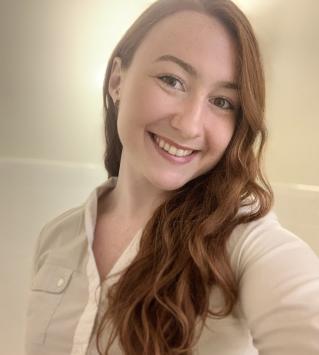
Abstract: Neurodevelopmental disorders (NDDs) affect the lives of >17% of children in the United States. A recently identified factor that has been linked to increased NDD outcomes is exposure to cephalosporin antibiotics during the first two years of life, when neurogenesis, the process by which neural precursors proliferate, migrate, and differentiate into specialized cells of the brain, predominates. Extensive research indicates that antibiotic exposure decreases the diversity of gut bacteria, which may consequently alter adult brain structure and function. However, little is known about effects on neurogenesis, identified as a point of convergence in NDD pathogenesis. Our studies use a novel gene x environment model to determine how cephalosporin exposure alters postnatal neurogenesis and behavior in the genetically vulnerable 16p11.2 microdeletion (16pDel) mouse. To model antibiotic exposure during infancy, wildtype and 16pDel littermates were exposed to saline (control) or the cephalosporin, cefdinir, from postnatal days 5-9. We found significant reductions in the gut microbiome composition of all cefdinir-exposed mice, with a selective reduction in hippocampal neurogenesis in 16pDel male mice. Additionally, all cefdinir-exposed mice had reduced sociability, which was exacerbated in the 16pDel mice. In summary, these data collectively support our hypothesis: early life cefdinir exposure perturbed the gut microbiome and selectively dysregulate neurogenesis and behavior in 16pDel mice.
Speaker Bio: Courtney R. McDermott is an NIH D-SPAN Scholar and Neuroscience PhD Candidate who has personal and professional interests in investigating the pathogenesis of neurodevelopmental disorders. She is mentored by Dr. Emanuel DiCicco-Bloom and co-mentored by Dr. Martin Blaser. Her dissertation examines the effects of early-life antibiotic exposure on the gut microbiome and neurogenesis in 16p11.2 microdeletion mice. Outside of the laboratory, Courtney is highly involved in science outreach. She is a member of the Rutgers School of Graduate Studies Diversity, Equity, and Inclusion Graduate Student Advisory Committee, volunteers at the Rutgers Center for Adult Autism and Services, and is the Neuroscience Graduate Mentor Fellow for the Rutgers Honors College.
2.) "PA phosphatase Pah1 contains a novel RP domain that regualtes its phosphorylation and function in yeast lipid synthesis" by Geordan Stukey
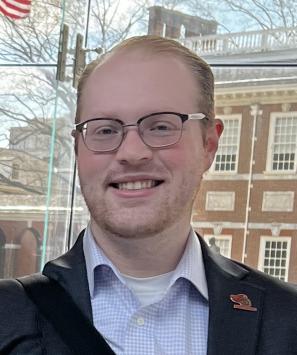
Abstract: The yeast enzyme responsible for partitioning a key lipid precursor molecule between membrane lipids and energy storage lipids is regulated by modifications to the enzyme. Using a variety of techniques, I have discovered a new domain in the enzyme that influences the ability of the enzyme to be modified. Despite this enzyme being evolutionarily well conserved from fungi to mammals (including humans), this domain is not found in the human version of the enzyme. Because this domain is unique to fungi, it represents a potential therapeutic target for opportunistic fungal pathogens.
Speaker Bio: I was born and raised in southwest Michigan. I completed my undergraduate degree in Biology from Hope College. I moved to Rutgers University following that to enter the Microbial Biology PhD program and work with Dr. George Carman. In my free time I am a book collector, coffee fiend, and avid cinephile.
3.) "Do They Like Me? The implication of (Meta-)Stereotypes on Inter-gendered Interactions In STEM" by Sandra Manfreda
Abstract: This research examines the content and implications of gendered-STEM stereotypes (i.e., stereotypes about women in STEM) and gendered-STEM meta-stereotypes (i.e., stereotypes that women in STEM believe that others hold towards them) on intergroup interactions in STEM settings. Previous work has documented the content of stereotypes held by men about women in STEM, across various dimensions. We extend this work by 1) documenting the content of both stereotypes and meta-stereotypes among women in STEM (i.e., what others believe about women in STEM and what others believe about you, as a woman in STEM), 2) investigating how women’s STEM identification (high v. low) informs intergroup perceptions, and 3) examining how (meta-)stereotypes might undermine intergroup interactions. We predict that gendered-STEM stereotypes and meta-stereotypes will differ among high STEM-identified women, and these meta-stereotypes will be stronger when considering outgroup (men) v. ingroup (women) perceivers. Finally, we hypothesize that stronger meta-stereotypes among high STEM-identified women will predict lower comfort, more negative feelings, and less friendship potential towards perceivers. Ultimately, this work will help inform our understanding of the barriers to positive intergroup interactions in STEM environments and implications for solutions.
Speaker Bio: I am a graduate student in the Social Psychology Ph.D. program at Rutgers University. My work is centered around social identity threat and intergroup contact. Specifically, I am interested in examining how stereotypes and meta-stereotypes (i.e., perceptions that an individual believes out-group members hold about them) of minoritized individuals interfere with positive intergroup interactions. One line of my research assesses the meta-stereotypes of women in STEM and how that effects their interactions with dominant group members (e.g., men) within STEM field. The second line of research focuses on leverages VR technology to explore behavioral and affective responses to interracial interactions.
About Research Cafe
Research Café brings together the entire graduate student community of Rutgers University-New Brunswick/Piscataway campus to strengthen scholarly literacy and interdisciplinary research communication by providing a platform for budding researchers to connect, share their in-progress research or scholarship, and benefit from peer feedback in a friendly and low-stakes setting.
Research Café is a monthly, one-hour event to occur entirely online during the Spring 2024 semester. Each event will feature:
- Presentations (10-12 min. each) from 2-3 graduate students from across disciplinary areas ranging from engineering and biology to history and anthropology.
- A Q&A dialogue with peers and attendees.
Sign up to attend in person or on Zoom at https://grad.rutgers.edu/research-cafe.
---
Questions? Contact the program coordinators:
Briana Bivens at bb770@grad.rutgers.edu and Ramazan Güngör at rg835@grad.rutgers.edu.
Research Cafe: Jay Joshi & Elaheh Hosseini
Graduate Student Organizations
Virtual Location
https://go.rutgers.edu/researchcafe.3.20.24More Information
Learn more about the Research Cafe series.Event Description
Research Cafe: March 20, 2024
3:00 - 4:00pm
On Zoom
1.) "Cell Cycle-Dependent Oscillations in the Master Metabolic Regulator mTOR Complex 1" by Jay Joshi
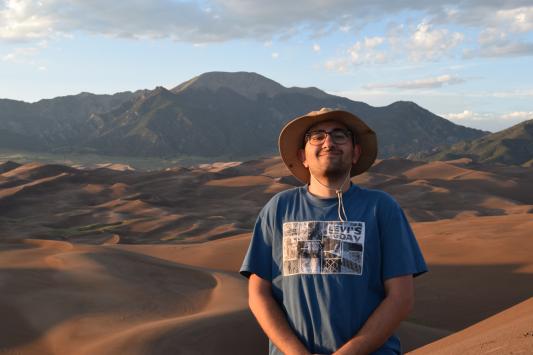
Abstract: Mechanistic Target of Rapamycin Complex 1 (mTORC1) is a master metabolic regulator that integrates nutrient and hormone signals to control cellular growth. mTORC1 dysregulation contributes to the development and progression of many diseases, including most human cancers. mTORC1 is activated in most proliferating cells, but whether mTORC1 is regulated in a cell cycle-phase specific manner is unknown. We hypothesized that mTORC1 activity changes throughout the cell cycle to meet the unique metabolic and biosynthetic demands of each cell cycle phase. Using multiple independent methods to track mTORC1 activity throughout a complete cell cycle, we find that mTORC1 activity oscillates from lowest in mitosis/G1 to highest in S-phase and G2. Cell cycle regulation of mTORC1 appears to be mediated through changes in subcellular localization of an essential negative regulator of mTORC1 called the TSC complex. Inhibiting mTORC1 in G2 delays mitotic induction, revealing a novel role for mTORC1 in potentially driving cell growth to satisfy the G2/M checkpoint. Taken together, our data uncover cell cycle-dependent oscillations in mTORC1 activity and suggest that mTORC1 could have phase-specific functions in promoting cell growth and proliferation.
Speaker Bio: I am a third year PhD candidate in the Cellular and Molecular Pharmacology graduate program. My thesis advisor is Dr. Alexander Valvezan, and I study the core mechanisms that regulate mammalian cell growth and cell proliferation, focusing specifically on Mechanistic Target of Rapamycin Complex 1 (mTORC1). Prior to graduate school, I was an undergraduate at Rutgers University-New Brunswick, where I majored in Genetics and minored in Psychology. As an undergraduate, I used fruit flies as a model organism to study female reproduction and development. I currently aspire to pursue a career in academia and start my own lab to study cancer progression and therapeutics. Outside of the lab, I enjoy reading (started War and Peace by Leo Tolstoy), hiking, traveling, and playing/watching sports.
2.) "Modulation of epithelial ovarian cancer anti-tumor immunity by a novel cancer cell-intrinsic stress regulator" by Elaheh Hosseini

Abstract: Despite all advances in onco-immunology, ovarian cancer patients’ responses to the immunotherapy approaches are limited which drives us to understand the immunobiology of the ovarian tumor microenvironment (TME). Our laboratory has identified a single nucleotide polymorphism in the gene UHRF1BP1 that is associated with better overall survival for ovarian cancer patients. While the role of UHRF1BP1 in cancer is not clear, preliminary research by our laboratory has revealed that UHRF1BP1 is transcriptionally responsive to mitochondrial stress through the integrated stress response (ISR) in p-eIF2α dependent mechanism. According to our chromatin immunoprecipitation (ChIP)-PCR data in human ovarian cancer cells, ATF4 binds to two sites within the promoter regions of the UHRF1BP1 gene, which is amplified under mitochondrial stress. Additionally, RNA-sequencing pathway analysis in murine ovarian cancer cells reveals that type I interferon (IFN) pathways are upregulated in the absence of Uhrf1bp1. Critically, the extended survival of mice bearing ovarian tumors with dysfunctional Uhrf1bp1 was found to be dependent on CD8+ T cells; suggesting UHRF1BP1 is a novel immunoregulator. These data support our hypothesis that dysfunctional cancer cell-intrinsic UHRF1BP1 promotes unmitigated stress responses in the TME which drives antitumor immunity through dysregulated type I IFN activity. Mechanistically, we postulate that dysfunctional UHRF1BP1 promotes the loss of mitochondrial membrane integrity, which drives type I IFN activity through cytoplasmic sensing of mitochondrial DNA. Collectively, our goal is to establish a new paradigm in our understanding of the immunobiology of ovarian cancer considering cellular stress responses as antitumor immunity regulators.
Speaker Bio: I am a third-year Ph.D. student in Cellular and Molecular Pharmacology. I am an international student and I work in Dr. Kyle Payne's lab in CINJ. The subject of my thesis is studying the dysregulation of cellular stress responses on the immunity of ovarian tumors.
About Research Cafe
Research Café brings together the entire graduate student community of Rutgers University-New Brunswick/Piscataway campus to strengthen scholarly literacy and interdisciplinary research communication by providing a platform for budding researchers to connect, share their in-progress research or scholarship, and benefit from peer feedback in a friendly and low-stakes setting.
Research Café is a monthly, one-hour event. Each event will feature:
- Presentations (10-12 min. each) from two graduate students from across disciplinary areas ranging from engineering and biology to history and anthropology.
- A Q&A dialogue with peers and attendees.
Sign up to attend on Zoom at go.rutgers.edu/researchcafe.3.20.24.
---
Questions? Contact Briana Bivens at bb770@grad.rutgers.edu.
Research Cafe: Jackie Stanmyre, Niki Natarajan, & Rachel Acosta
Graduate Student Organizations
More Information
Learn more about the Research Cafe series.Event Description
Research Cafe: February 7, 2024
3:00 - 4:00pm
On Zoom
Register in advance to receive the Zoom link
1.) "A latent class analysis of problem gambling risk factors among athletes who gamble" by Jackie Stanmyre
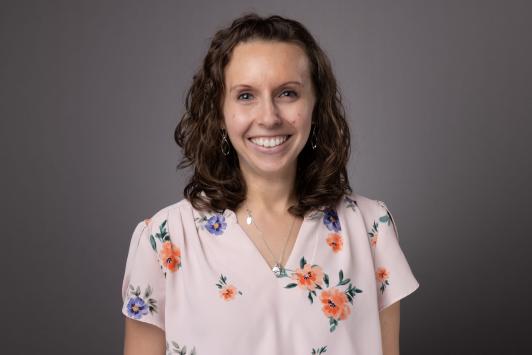
Abstract: In the past five years, almost 40 states nationwide have legalized sports betting, many offering the option to gamble at any time from mobile devices. This widespread and rapid expansion often has been absent a comprehensive consideration of the implications for problem gambling risk. Problem gambling can lead to adverse outcomes including bankruptcy, interpersonal problems, and mental health challenges, including suicidality. Problem gambling also is widely associated with co-occurring concerns including depression, anxiety, and substance use and impulse control disorders, as well as health problems and elevated rates of family violence. Among subpopulations likely to be affected by an increase in sports betting opportunities are athletes. This presentation will highlight preliminary findings of an examination of how risk factors cluster among athletes who gamble, identified by latent class analyses. The study uses an epidemiological sample of New Jersey residents and is guided by the Pathways Model of Problem Gambling, the foremost etiological framework in the field. Initial results suggest high rates of co-occurring disorders among athletes who experience the highest levels of problem gambling, suggesting the need for an expansion of gambling screening across healthcare access points utilized by athletes, as well as an increase in prevention and education efforts.
Speaker Bio: Jackie Stanmyre is a PhD candidate with research interests in addiction and co-occurring risk factors, particularly as they relate to gambling among vulnerable populations, as well as intervention development and evaluation. As assistant director of the Center for Gambling Studies, she provides daily oversight for grant-funded research projects primarily in (1) improving gambling screening and intervention and (2) analyzing sports wagering and online gambling activity among New Jersey residents, with consideration for the implications of problematic play. She has practice experience in the field of addiction and co-occurring mental health, having spent six years in clinical work, and is credentialed as a Licensed Clinical Social Worker (LCSW) and Licensed Clinical Alcohol and Drug Counselor (LCADC). Her ambition is to remain engaged in addiction-focused research, particularly given the many changes in the cultural climate regarding gambling and the resulting increase in vulnerability.
2. "How Teens Negotiate Social Media Algorithms" by Niki Natarajan
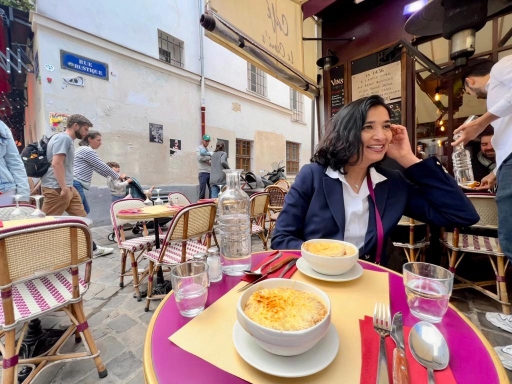
Abstract: Moral panics are a persistent theme in teenagers’ social media use – often cast as problematic and addictive. However, the scholarly literature reveals a gap in studying whether and how teens actively resist social media design. Niki’s ongoing work involves in-depth interviews with teens to understand how and why they use media/technology in unique and quirky ways, and how they insert agency.
Speaker Bio: Niki Natarajan is a PhD Candidate at the School of Communication and Information, Rutgers University. Niki’s research focuses on audience relationships with emerging technologies. Nikiearned her Master’s degree in integrated marketing communications from Northwestern University, and her Bachelor’s degree in Economics. She is a British Chevening scholar – she won a competitive scholarship for a work-study program at the University of Westminster, London, UK. Niki started her media career as a sports reporter at The Indian Express Newspaper, and went on to cover business, politics and breaking news stories in India and the United States across print, broadcast and digital formats. Niki is multilingual. She pioneered news livestreams when social media livestream technology first emerged, and covered the entire 2016 US elections with her #studioinasuitcase. Her most recent newsroom role, prior to joining the PhD program at Rutgers, Niki was Consulting Editor (U.S.) for India’s premier news wire service. Fun Fact: Niki plays and teaches tennis.
3. "'Betwixt and Between' Returning to the Office" by Rachel Acosta
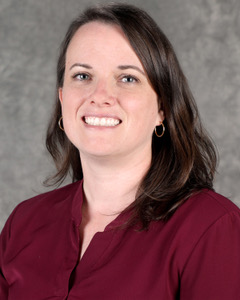
Abstract: Disruptive events upend organizational life for employees and often mark the beginning of transitional experiences as employees seek a new normal. When the majority of U.S. organizations shutdown in-person operations in March 2020, employees adapted quickly to new information communication technologies and evolving working conditions. In subsequent years, the process of employees returning to office buildings marked the beginning of yet another disruption, initiating a need for employees to manage a new transitional experience. This study implements liminality as a framework to understand individuals’ experience and management of transitional experiences during an organizational disruption. Semi-structured interviews with participants from a variety of organizational contexts were used to explore the role of organizational policies as signals, the ways employees leveraged liminality to creatively adapted and explore possibilities, and how a sense of liminality complicates employees’ transitional experiences like a return to office. Findings showed that organizational signals regarding change and the strategies employees used to maintain flexibility influenced if employees assessed a return-to-office as regressive (extending liminality) or progressive (ending liminality). This study lays the groundwork to better understand how widespread organizational disruptions event leads employees to perceive and manage processes of liminality.
Speaker Bio: Rachel Acosta is a doctoral candidate in the Department of Communication at Rutgers University. Her research interests include liminal experiences of organizational members, multilevel organizing, and paradoxes and tensions in disruptive contexts. She attended Florida International University for her Bachelor of Arts degree in English. She also holds a Master in Library and Information Science from South Carolina University. She loves listening to podcasts and is always taking recommendations!
About Research Cafe
Research Café brings together the entire graduate student community of Rutgers University-New Brunswick/Piscataway campus to strengthen scholarly literacy and interdisciplinary research communication by providing a platform for budding researchers to connect, share their in-progress research or scholarship, and benefit from peer feedback in a friendly and low-stakes setting.
Research Café is a monthly, one-hour event. During the Spring 2024 semester, Research Cafe will occur entirely on Zoom. Each event will feature:
- Presentations (10-12 min. each) from two graduate students from across disciplinary areas ranging from engineering and biology to history and anthropology.
- A Q&A dialogue with peers and attendees.
- Conversational time to connect!
Sign up to attend on Zoom at https://grad.rutgers.edu/research-cafe.
---
Questions? Contact the program coordinators:
Sonal Gahlawat at sg1389@scarletmail.rutgers.edu, Briana Bivens at bb770@grad.rutgers.edu, and Ramazan Güngör at rg835@grad.rutgers.edu.
Research Cafe: Parameshwaran Pasupathy, Rebecca Risman & Haydee Pacheco
Graduate Student Organizations
More Information
Learn more about the Research Cafe series.Event Description
Research Cafe: January 24, 2024
3:00 - 4:00pm
On Zoom
1.) "On The Micromechanics of Onset and Evolution of Damage in Brain White Matter: A Computational Primer" by Parameshwaran Pasupathy
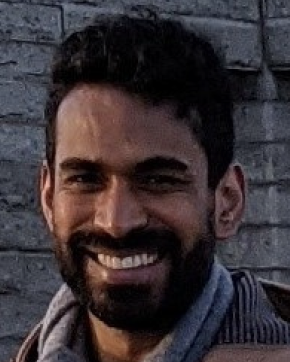
Abstract: Axonal nerve damage in the central nervous system (CNS) white matter is among the factors responsible for the deterioration in brain tissue's mechanical and functional performance during trauma-like events. The onset and evolution of mechanical, and consequently functional, axonal damage are attributed to the magnitude, frequency, and repetitiveness of large loads, deformations, or a combination of the above factors. In this study, we develop a microstructural model of CNS brain white matter (BWM) that characterizes the onset and evolution of damage in axons surrounding the ECM. Representative elemental volumes (REV) of axons of varying diameters and tortuosity are embedded in ECM. A hyperelastic strain energy density function describes the material behavior of the axons and ECM. Damage is described as a progressive softening of the material model due to repeated displacement loading boundary conditions. The softening of the material is characterized by introducing a damage criterion within the strain energy density function. The effects of axon tortuosity, volume fraction, and number of loading cycles are analyzed in a parametric study. The model seeks to discern the micromechanics of cumulative axonal damage in mTBI due to repeated head impacts, as seen in contact sports, domestic abuse, and military training and service scenarios.
Speaker Bio: Parameshwaran Pasupathy is a 4th year PhD student at the Department of Mechanical and Aerospace Engineering. His dissertation is on the multi-scale modeling of brain tissue, which is at the intersection of mechanobiology, computational solid mechanics, and interfacial mechanics. His interdisciplinary research on micro-scale modeling of white matter seeks to develop a fundamental understanding of brain injury and its relevance in detecting mTBI (mild-Traumatic Brain Injury), which is currently undetectable by standard diagnostic tools (such as MRI and DTI.). Paramesh has a Masters degree in Aerospace Engineering from the University of Michigan. Prior to beginning his PhD at Rutgers, Paramesh worked as an Senior Technical Engineer for Siemens PLM as a part of their HEEDS multi-disciplinary design optimization team.
2.) "Internal fibrinolysis of fibrin clots is driven by pore expansion" by Rebecca Risman
Abstract: Blood clots are critical in cessation of bleeding following injury. However, their action is transient and after performing their physiological function they must be resolved through a process known as fibrinolysis. Fibrin-bound tissue plasminogen activator (tPA) converts nearby plasminogen into active plasmin, which is bound to the fibrin network, breaking it down into fibrin degradation products and releasing the entrapped blood cells. It is poorly understood how changes in the fibrin structure and molecular interactions influence the biochemical regulation and behavior of internal fibrinolysis. We used a combination of experiments and mathematical modeling to study fibrin structure and molecular interactions that restrict internal fibrinolysis. Analysis of simulations and experiments indicate that fibrinolysis is driven by pore expansion of the fibrin network. We show that this effect is strongly influenced by the ratio of fibrin:lytic enzyme when compared to absolute enzyme concentration. It is essential to consider the molecular interactions when studying internal fibrinolysis both experimentally and in the clinic. An improved understanding of effective internal lysis can aid in development of better monitoring techniques to avoid thrombotic or bleeding risk, as well as in the design of novel enzymatic treatments to overcome the innate challenges with internal lysis.
Speaker Bio: Rebecca Risman is a 4th year PhD student in the Biomechanics of Blood Lab working under the guidance of Dr. Valerie Tutwiler. She graduated from Rutgers in 2019 with a bachelor’s in biomedical engineering. Her current research focuses on the mechanisms of blood clot resistance to break down (fibrinolytic resistance) due to diseased conditions. Rebecca was awarded a two-year pre-doctoral fellowship from the New Jersey Commission for Cancer Research to probe the mechanisms of cancer-associated thrombosis. She is a trainee in the Rutgers NIH Biotechnology Training Program and a fellow in the PreDoctoral Leadership Develop Academy. Rebecca enjoys scientific communication to general and niche communities and thanks the School of Graduate Studies for providing the Research Café for this platform.
3.) "Intermittent luminescence of silver nanoparticles" by Haydee Pacheco

Abstract: We investigate the intrinsic luminescence blinking behavior of AgNPs using single-particle spectroscopy. We specifically investigate the blinking behavior of AgNPs at green and red wavelengths. In addition, we investigate the shifts in crystal structure, binding energy of silver and fermi level of AgNPs to understand how various shapes, sizes and compositions affect the electronic structure of AgNPs. Our results indicate that crystallization-induced changes in interparticle distance, surface composition, electronic structure, and crystal structure are associated with alterations in blinking characteristics at red and green wavelengths. Our work highlights the wavelength-dependent nature of AgNP blinking and the complexity of the underlying mechanisms. These findings also provide new insights into the underlying mechanisms of blinking behavior in plasmonic nanostructures and have implications for the design of plasmonic devices for sensing, imaging, and other applications.
Speaker Bio: Materials science graduate student working in plasmonics, expertise in nanofabrication techniques and optoelectronic devices
About Research Cafe
Research Café brings together the entire graduate student community of Rutgers University-New Brunswick/Piscataway campus to strengthen scholarly literacy and interdisciplinary research communication by providing a platform for budding researchers to connect, share their in-progress research or scholarship, and benefit from peer feedback in a friendly and low-stakes setting.
Research Café is a monthly, one-hour event to occur at rotating locations across the Rutgers New Brunswick/Piscataway campus (a Zoom option will be available, too). Each event will feature:
- Presentations (10-12 min. each) from two graduate students from across disciplinary areas ranging from engineering and biology to history and anthropology.
- A Q&A dialogue with peers and attendees.
- Conversational time over refreshments and snacks.
Sign up to attend on Zoom at https://grad.rutgers.edu/research-cafe.
---
Questions? Contact the program coordinators:
Sonal Gahlawat at sg1389@scarletmail.rutgers.edu, Briana Bivens at bb770@grad.rutgers.edu, and Ramazan Güngör at rg835@grad.rutgers.edu.
Research Cafe: Avanthika Bharath & Jacquelyn Veatch
Graduate Student Organizations
More Information
Learn more about the Research Cafe series.Event Description
Research Cafe: December 13, 2023
3:00 - 4:00pm
The Hatchery Innovation Studio, Alexander Library
169 College Ave., New Brunswick
Zoom option available.
~Snacks & coffee provided!~
Register to attend in person or on Zoom.
1.) "Bacteria and their superpower to take up environmental DNA: The deep sea edition" by Avanthika Bharath
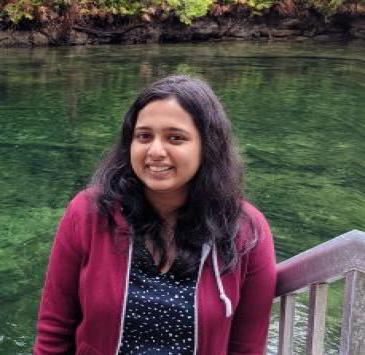
Abstract: Some bacteria have the extraordinary ability to take up free DNA floating in their surroundings and incorporate it into their own genetic material. This process is called “genetic transformation” and has contributed to bacterial evolution for ages. Although this process is well characterized in clinically relevant bacteria, there is limited knowledge about this process in deep-sea hydrothermal vent bacteria where life is hypothesized to have originated. In this study, we analyzed the genes and proteins of the vent microbiota obtained from basalts, mussels and tubeworm scrapings in the East Pacific Rise, and detected that they do contain and synthesize the machinery necessary for DNA uptake and genetic transformation. Based on this evidence, our major aim was to visually demonstrate DNA uptake in two deep-sea vent species in our lab, Caminibacter mediatlanticus and Sulfurovum riftiae. Actively growing bacteria were exposed to fluorescently labeled DNA fragments for 30 minutes and then visualized using microscopy. We observed fluorescence within the cells for both bacteria, proving that they can take up DNA from their environments. Overall, the findings of this study provide us with preliminary evidence that can serve as a precursor for broadening our understanding of this process in these vastly understudied environments.
Speaker Bio: I am Avanthika Bharath, a 5th year PhD student in Microbial Biology. I work in the Deep-Sea Microbiology lab with Dr. Costantino Vetriani. I completed my bachelor’s in Industrial Biotechnology in India. I moved to the USA and joined Rutgers as a Masters student in 2018 and transitioned to PhD a year later. I am currently studying DNA exchange in deep sea bacteria via a process called “Genetic Transformation”. The most exciting experience during my time in Rutgers was the opportunity to participate in a month-long NSF- Funded research expedition to the East Pacific Rise in December 2022 for a project studying microbial-larval interactions in the deep-sea hydrothermal vents. I had the opportunity to participate as an observer in the Deep Sea Vehicle, Alvin which was involved in deployment, recovery and collection of samples from deep sea hydrothermal vents. I was also a TA for General Microbiology from 2019-2022.
2.) "Finding Food in a Big Ocean" by Jacquelyn Veatch
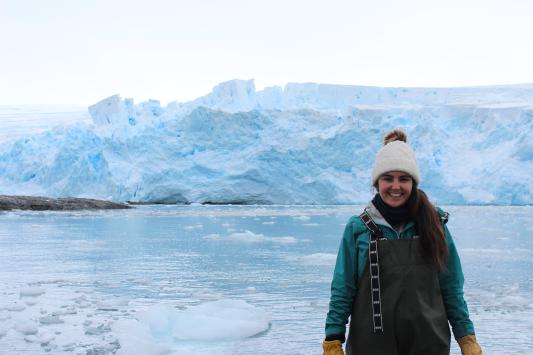
Abstract: The ocean has been a source of livelihood and inspiration for all of humanity. According to the UN Development Program, 15% of the animal protein we eat comes from seafood, and 80% of all tourism takes place in coastal areas. Yet the coastal ocean is taking a lot of the heat for us, from climate change and pollution. My research works to understand how marine ecosystems concentrate resources at the base of the food web, allowing the creatures higher on the food web to find food. A better understanding of the processes that structure marine food webs will inform effective management, increasing the sustainability of life on this ocean planet. The base of marine food webs is made up of tiny drifting plants and animals called plankton. I hypothesize that the movement of plankton by ocean currents concentrates plankton, creating marine “grocery stores” visited by feeding marine creatures. My research has developed mathematical tools that locate these dynamic marine grocery stores. My research team and I set up an ocean observing system around a known biological hotspot in Palmer Deep, Antarctica. Using a host of instruments, we were able to observe predators forage through fields of plankton and the ocean currents surrounding them. The results of these observations were conclusive: we saw currents push plankton together, forming dynamic grocery stores of prey targeted by predator penguins. This is good evidence that the transport and concentration of food to Palmer Deep sustains the many migratory animals that travel here each year.
Speaker Bio: Jackie is a Ph.D. student in Physical Oceanography with an interest in applying an understanding of maths and physics to the living world. Her dissertation research bridges intellectual gaps between coastal physical oceanography and spatial ecology by investigating how coastal currents transport and concentrate food resources (plankton) into large patches she refers to as "marine grocery stores". Jackie's interest in interdisciplinary work pre-dates her time at Rutgers. She earned her Bachelor of Science in Biophysics from the George Washington University and has tried her hand in immunology, antibody production, coastal ecology, and wilderness adventure before landing in oceanography.
About Research Cafe
Research Café brings together the entire graduate student community of Rutgers University-New Brunswick/Piscataway campus to strengthen scholarly literacy and interdisciplinary research communication by providing a platform for budding researchers to connect, share their in-progress research or scholarship, and benefit from peer feedback in a friendly and low-stakes setting.
Research Café is a monthly, one-hour event to occur at rotating locations across the Rutgers New Brunswick/Piscataway campus (a Zoom option will be available, too). Each event will feature:
- Presentations (10-12 min. each) from two graduate students from across disciplinary areas ranging from engineering and biology to history and anthropology.
- A Q&A dialogue with peers and attendees.
- Conversational time over refreshments and snacks.
Sign up to attend in person or on Zoom at https://grad.rutgers.edu/research-cafe.
---
Questions? Contact the program coordinators:
Sonal Gahlawat at sg1389@scarletmail.rutgers.edu, Briana Bivens at bb770@grad.rutgers.edu, and Ramazan Güngör at rg835@grad.rutgers.edu.
Research Cafe: Hannah Federman & Eric Chiles
Graduate Student Organizations
More Information
Learn more about the Research Cafe series.Event Description
Research Cafe: November 15, 2023
3:00 - 4:00 pm
The Hatchery Innovation Studio, Alexander Library
169 College Ave., New Brunswick
Zoom option available.
~Snacks & coffee provided!~
Register to attend in person or on Zoom.
1.) "Investigating the role of serotonin 2C in regulating helminth-induced inflammation" by Hannah Federman
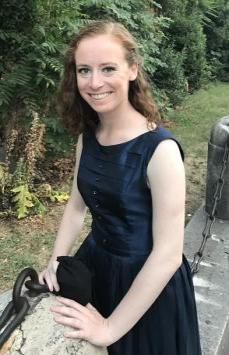
Abstract: A growing body of literature has begun to reveal that neuropeptides and neurotransmitters can play previously unappreciated roles in both allergic and anti-parasite responses. Helminth parasites, such as hookworms, can affect several host tissues, including the lung, where they promote strong type 2 cytokine responses that support worm clearance and simultaneously initiate wound healing. Our work, and that of others, has recently identified monocyte-derived alveolar macrophages (Mo-AMs) with an alternatively activated (M2) phenotype as critical regulators of this wound healing, populating the lung in response to hookworm-induced inflammation. Further, our work has shown that Mo-AMs change phenotypically the longer they persist in the lung. Despite these advances, whether neuron-associated factors participate in this tissue imprinting process remains unknown. Interestingly, we’ve found that Mo-AMs gradually acquire high levels of the serotonin 2C receptor (5HTR2c) after entering the lung microenvironment. Serotonin is a neurotransmitter that plays important roles in myriad biological functions beyond its well described roles in the central nervous system. However, whether 5HTR2c-derived signals restrict the activation of monocyte-derived macrophages is unclear. We have now shown, both in vitro and in mice, that serotonin may operate to limit the helminth-induced macrophage response and provide additional insight into the neuron-associated factors that restrict tissue remodeling responses.
Speaker Bio: I am a 5th year PhD candidate in the parasite-immunology lab of Dr. Mark Siracusa, here at NJMS. I study the way in which serotonin and serotonin-signaling regulates macrophage activity in the lung during infection and emphysema. I'm very interested in how the body (sometimes) acts against its own best interests (like in allergic disease and autoimmunity).
2.) "Some (don’t) like it hot: How rising ocean temperatures shift metabolism within the coral holobiont" by Eric Chiles
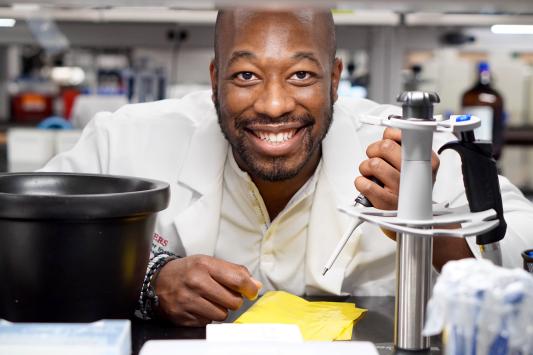
Abstract: Coral reefs are under threat globally due to anthropogenic climate change. Understanding the relationship between the coral holobiont, the animal host and its algal and bacterial symbionts, is essential for conservation efforts. We used Liquid Chromatography coupled with Mass Spectrometry (LCMS) based metabolomics and statistical analysis tools to reveal metabolomic features correlated with prolonged heat stress. Features showing increased levels with prolonged heat stress were annotated based on accurate mass, retention time, and the MS2 spectra match to chemically synthesized pure standards. We validated several dipeptides that are significantly enriched during heat stress. This data raised questions regarding the origin of dipeptide enrichment and nitrogen metabolism in the holobiont.
In this talk I will share how we answered some of those questions by designing a controlled time course experiment with stable isotope tracing using nubbins from three species of coral, the heat tolerant Montipora capitata & Porites compressa and the heat sensitive Pocillopora acuta, all of which are endemic to the Hawaiian reef at Kaneohe Bay, Oahu. Additionally, I will also share on how tracing isotope incorporation through a metabolic pathway under different ecological conditions can inform on which host-microbial partner bears the metabolic burden and how that ultimately impacts coral survivorship outcomes under stress.
Speaker Bio: Eric N. Chiles is a 3rd year Ph.D. Candidate in the Microbial Biology program as well an alumnus from the School of Biological Sciences (SEBS) here at Rutgers University. His dissertation lies at the intersection of how microbial-host interactions are shaped by environmental context in non-model organisms and weaves together numerous scientific disciplines. A particular area of focus is the application of tools developed for biomedical research towards microbial and environmental questions. He has had the honor and pleasure of sharing his work in a number of spaces including meetings of the Metabolomic Society of North America, the American Society for Mass Spectrometry, and the International Coral Reef Society. He has also been recognized for his progress on his dissertation project by being awarded the Goyette Family Scholarship through SEBS. Eric also is an active member of the Rutgers community. He currently serves as the President of the Graduate Student Association, on the SGS DEI Student Advisory Committee, and the NB Diversity Strategic Plan Working Group. He also works as a full-time researcher at the Cancer Institute of New Jersey Metabolomics Shared Resource Lab. When he isn’t in lab he can usually be found standing over his stove, patronizing the arts, rabble-rousing for social equity, or outside soaking up some nature.
About Research Cafe
Research Café brings together the entire graduate student community of Rutgers University-New Brunswick/Piscataway campus to strengthen scholarly literacy and interdisciplinary research communication by providing a platform for budding researchers to connect, share their in-progress research or scholarship, and benefit from peer feedback in a friendly and low-stakes setting.
Research Café is a monthly, one-hour event to occur at rotating locations across the Rutgers New Brunswick/Piscataway campus (a Zoom option will be available, too). Each event will feature:
- Presentations (10-12 min. each) from two graduate students from across disciplinary areas ranging from engineering and biology to history and anthropology.
- A Q&A dialogue with peers and attendees.
- Conversational time over refreshments and snacks.
Sign up to attend in person or on Zoom at https://grad.rutgers.edu/research-cafe.
---
Questions? Contact the program coordinators:
Sonal Gahlawat at sg1389@scarletmail.rutgers.edu, Briana Bivens at bb770@grad.rutgers.edu, and Ramazan Güngör at rg835@grad.rutgers.edu.
Research Cafe: Tsung-Chi Wu & Mary Pat Reiter
Graduate Student Organizations
More Information
Learn more about the Research Cafe series.Event Description
Research Cafe: October 18, 2023
3:00 - 4:00pm
The Hatchery Innovation Studio, Alexander Library
169 College Ave., New Brunswick
Zoom option available.
~Snacks & coffee provided!~
Register to attend in person or on Zoom.
1.) "Lego-Building of Quantum Materials" by Tsung-Chi Wu
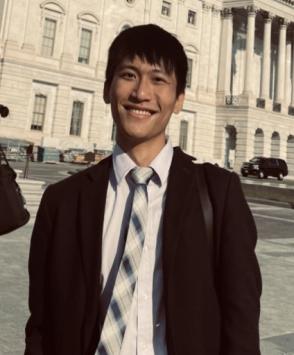
Abstract: Physicists and materials scientists are eagerly exploring an emerging field of quantum materials, which has the immense potential to transform technology and revolutionize our understanding of the world. Unlike ordinary materials, quantum materials possess extraordinary properties that defy explanations using conventional scientific theories. Instead, their behavior is governed by the principles of quantum physics, which delve into the fundamental workings of matter. Researchers have made groundbreaking advancements in electronics, energy generation, and quantum computing by gaining a profound understanding of their unique properties. In this talk, I will introduce two captivating types of quantum materials: superconductors and topological insulators. We will explore the fascinating phenomena in these materials and discuss how they contribute to expanding our knowledge of the world and potentially leading to new technologies that can benefit our everyday lives. Additionally, I will take you through creating quantum materials in our lab. Imagine building a Lego house where each brick fits perfectly; similarly, we can connect individual atoms with absolute precision. It is like assembling tiny building blocks on an atomic scale to form these extraordinary materials.
Speaker Bio: Tsung-Chi Wu is a Ph.D. candidate in the Department of Physics and Astronomy. As an experimental physicist, Tsung-Chi is passionate about creating materials with new properties and functionalities. His research goal is to advance the frontiers of human knowledge and real-world applications with these novel materials. Apart from research, he is dedicated to promoting educational equity through teaching, mentoring, and service.
2.) "Triboelectricity and adhesive tape: studying static electricity using office supplies" by Mary Pat Reiter
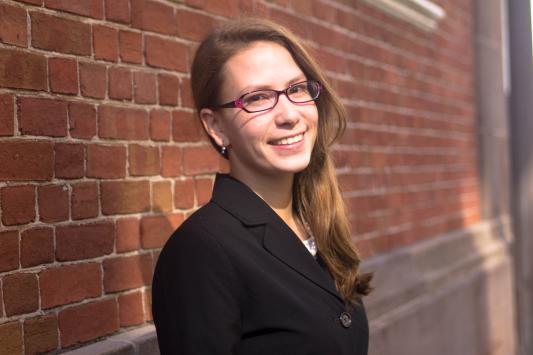
Abstract: Triboelectrification, or contact charging, is a form of static electricity resulting from contacting and separating surfaces. The effects of triboelectricity are prevalent in everyday life, nature, and industry, from the occasional shock from removing a wool sweater to volcanic ash lightning to the demixing of pharmaceutical powders. To better understand the mechanisms that cause this notoriously unpredictable phenomenon, we look to a simpler example: peeling tape. Peeling adhesive tape can generate x-ray radiation making it a pivotal development in the study of triboelectrification. We report a new method for observing this phenomenon by using another commonplace item: copier toner. Photocopier toner particles charge positively or negatively when contacting metal, which is yet another everyday example of contact charging. We expose peeled adhesive tape and the substrate from which it was peeled to these charged powders to give us a printed history of the charge patterns present. We demonstrate that the choice of substrate material (e.g., Teflon, acrylic) will produce distinct, but complementary, patterns on the substrate and tape. We present other unique charging patterns found experimentally and support our conclusions with a computational model.
Speaker Bio: Mary Pat Reiter is a 5th year PhD candidate in the Biomedical Engineering department and a Rutgers undergraduate alumna. Her dissertation project focuses on peeling adhesive as a method of investigating static electricity. For her work on this project, she was most notably awarded the Society of Tribologists and Lubrication Engineers’ Elmer E. Klaus fellowship (2020) and first place presentation at the Electrostatics Society of America’s Annual Meeting (2023). She enjoys teaching, mentoring undergraduate researchers, and participating in STEM outreach programs and is a former treasurer of the Graduate Student Association and an active member of Rutgers GRADient, the LGBTQIAA+ Graduate Student Organization. She was recently recognized with the Rutgers Dr. Judy B. Plummer S.T.E.A.M. Women’s Empowerment award for her involvement in these areas. Her hobbies outside of academia include learning Galician (a language from Galicia in Northwest Spain), singing, drawing, playing video games, and making useful (and useless) spreadsheets.
About Research Cafe
Research Café brings together the entire graduate student community of Rutgers University-New Brunswick/Piscataway campus to strengthen scholarly literacy and interdisciplinary research communication by providing a platform for budding researchers to connect, share their in-progress research or scholarship, and benefit from peer feedback in a friendly and low-stakes setting.
Research Café is a monthly, one-hour event to occur at rotating locations across the Rutgers New Brunswick/Piscataway campus (a Zoom option will be available, too). Each event will feature:
- Presentations (10-12 min. each) from two graduate students from across disciplinary areas ranging from engineering and biology to history and anthropology.
- A Q&A dialogue with peers and attendees.
- Conversational time over refreshments and snacks.
Sign up to attend in person or on Zoom at https://grad.rutgers.edu/research-cafe.
---
Questions? Contact the program coordinators:
Sonal Gahlawat at sg1389@scarletmail.rutgers.edu, Briana Bivens at bb770@grad.rutgers.edu, and Ramazan Güngör at rg835@grad.rutgers.edu.
Research Cafe: Mehdi Kushkestani, Melissa Dreier & Victoria Stiritz
Graduate Student Organizations
More Information
Learn more about the Research Cafe series.Event Description
Research Cafe: September 20, 2023
3:00 - 4:00pm
The Hatchery Innovation Studio, Alexander Library
169 College Ave., New Brunswick
Zoom option available.
~Snacks & coffee provided!~
Register to attend in person or on Zoom.
1.) "The relationship between drug use, sleep quality and quality of life in campus students" by Mehdi Kushkestani

Abstract: Introduction: The prevalence of drug use and poor sleep quality has been on the rise among university students, impacting their overall quality of life. In light of these concerns, this study aimed to investigate the relationship between drug consumption, sleep quality, and quality of life among students residing in the dormitories of Allameh Tabataba’i University. Methods: This descriptive-correlational study involved a randomly selected sample of 240 females and 180 males living in the student dormitories. The participants completed three questionnaires: the Pittsburgh Sleep Quality Index (PSQI) to assess sleep quality, the Alcohol, Smoking, and Substance Involvement Screening Test (ASSIST) to evaluate drug use, and the 36-Item Short-Form Health Survey to measure their quality of life. Data analysis was performed using SPSS 21 software, with a significance level set at p<0.05. Results: The results revealed a significant negative relationship between the level of quality of life and the use of tobacco (p=0.037) and sedatives (p=0.004) among the students. Additionally, the study found a significant and negative association between students' sleep quality and the consumption of tobacco (p=0.011), sedatives (p=0.001), inhalants (p=0.048), and other drugs (p=0.028). Conclusions: The findings indicate that drug consumption among university students adversely affects sleep quality and overall quality of life, thus impacting the overall community health. Addressing these issues is crucial for promoting a healthier and more productive university environment.
Speaker Bio: Exercise physiologist researcher
2.) "Breaking down teen social media use, mood, and mental health: An individualized approach" by Melissa Dreier
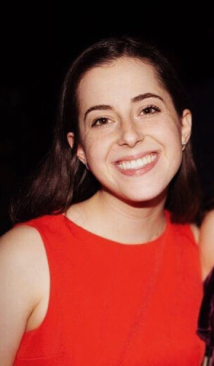
Abstract: Many stakeholders are sounding alarm bells about the relationship between teenage social media use and mental health. Yet research findings on this topic to date are mixed, and emerging research highlights that individual differences are likely at play. My research seeks to understand how adolescents’ mood may be affected by social media use on a daily level and how they use social media (i.e., more or less) in response to their mood. I have also sought to understand these patterns—not just overall—but for individual adolescents over long periods of time, using technologies that monitor social media use behaviors and mood in real time. My findings indicate that most adolescents do not experience changes to mood on daily level when they use/check social media more and they do not alter their behaviors when they are feeling down or blue. Some adolescents do check it more when it brings up positive emotions—highlighting that for some it may be more rewarding. My findings broadly highlight that—on a daily level—social media does not seem to affect adolescents’ mood. However, most adolescents do not self-regulate social media use based on their mood, which could have downstream consequences.
Speaker Bio: Missy is a 3rd year Ph.D. student in Psychology at the School of Arts and Sciences, where she works with Dr. Jessica Hamilton in the Hamilton Lab. Missy’s research broadly seeks to understand why teenagers do things that are not in their own best interest. In graduate school, most of Missy’s research has focused on how adolescents use social media (how long they spend on it and how often they check it) in relation to their mood (i.e., how they feel). Her upcoming dissertation project will seek to understand how adolescents regulate (or cope with/work through) emotions after negative experiences on social media and whether different coping styles predict different mood patterns. Prior to coming to Rutgers, Missy worked for two years as a research coordinator at Massachusetts General Hospital and completed her undergraduate degree in Psychology, along with minors in Theater and French, at Harvard University.
3.) "Modeling Impulsivity through Negative Urgency By Repurposing Operant Avoidance" by Victoria Stiritz
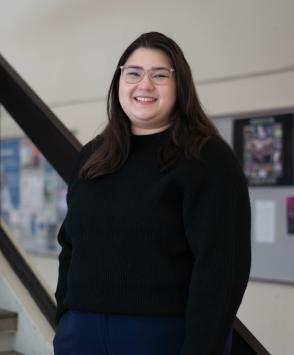
Abstract: Suicide rates among veterans have climbed notably higher than that of civilians over the past 20 years. Suicidality is complex, with a plethora of factors contributing to its development. Impulsivity has been identified as a risk factor, yet is multifaceted itself. Negative urgency is a dimension of impulsivity that encompasses experiencing strong impulses during negative emotional states. Given that military personnel are subject to periods of prolonged or extreme stress, studying how and why negative urgency may be exacerbated in these circumstances can lead us to new developments to keep our troops and veterans safe. Currently, there are few behavioral paradigms to assess negative urgency in rodents. Our lab has piloted the repurposing of operant lever-press avoidance to measure negative urgency. Briefly, the rodent must learn to press a lever in response to a warning cue to avoid foot-shocks. To examine whether this paradigm can detect impulsivity, a subset of the animals sustained a mild traumatic brain injury (mTBI), a condition where impulsivity is a commonly reported symptom. Results between contingent and non-contingent paradigms will be compared to assess paradigm efficacy. Ultimately, this study will aid us in understanding behavioral traits that might contribute to the untimely death of veterans.
Speaker Bio: Victoria is a third-year Ph.D. Candidate at the Neurobehavioral Research Laboratory at the East Orange VA Medical Center under the mentorship of Dr. Kevin Beck. She is a bona fide Scarlet Knight, graduating from Rutgers-New Brunswick in 2021 as an Honors College and LSAMP Scholar, and now at RBHS-Newark for her graduate training. Her scientific interests lie primarily with military-focused topics, including addiction and neurotrauma. Outside of the lab, Victoria enjoys reading, powerlifting, and over-complicated caffeinated drinks.
About Research Cafe
Research Café brings together the entire graduate student community of Rutgers University-New Brunswick/Piscataway campus to strengthen scholarly literacy and interdisciplinary research communication by providing a platform for budding researchers to connect, share their in-progress research or scholarship, and benefit from peer feedback in a friendly and low-stakes setting.
Research Café is a monthly, one-hour event to occur at rotating locations across the Rutgers New Brunswick/Piscataway campus (a Zoom option will be available, too). Each event will feature:
- Presentations (10-12 min. each) from two graduate students from across disciplinary areas ranging from engineering and biology to history and anthropology.
- A Q&A dialogue with peers and attendees.
- Conversational time over refreshments and snacks.
Sign up to attend in person or on Zoom at https://grad.rutgers.edu/research-cafe.
---
Questions? Contact the program coordinators:
Sonal Gahlawat at sg1389@scarletmail.rutgers.edu, Briana Bivens at bb770@grad.rutgers.edu, and Ramazan Güngör at rg835@grad.rutgers.edu.